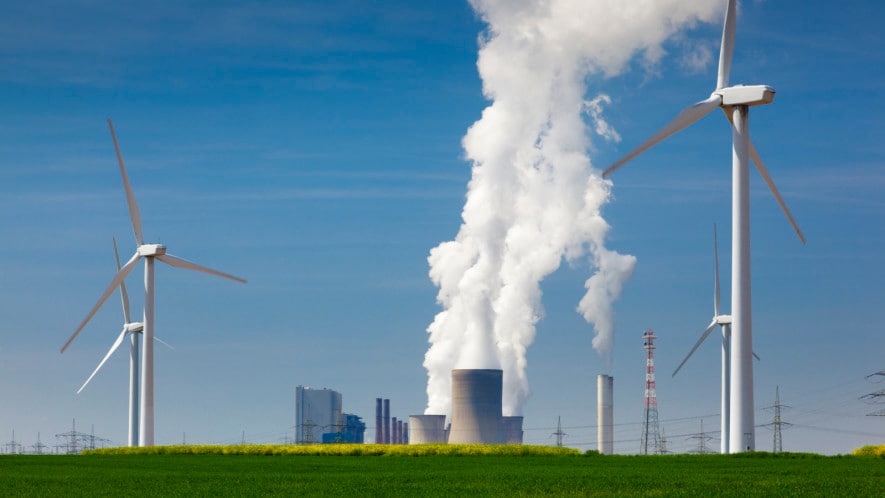
Among other things, companies will soon be obliged to investigate the negative sustainability impacts they, and parties in the value chain, cause. They must prevent, limit, minimize and/or eliminate (potential) negative effects.
The fact that content and timing of the CSDDD have not yet been determined does not mean that organisations can wait and see. Media reports about a 'wave of climate claims' are already leading to client reactions asking what to do with them, says Noor Sanders, PwC partner and expert in the field of sustainability.
'We understand this leads to uncertainty among leadership. My answer would be: stay calm, but take this very seriously, as this topic will not go away. I think many organisations already take sustainability seriously. The guideline provides guidance to further shape this.'
Claudine Maeijer, partner at PwC within Legal Business Solutions, emphasizes that it is important to take measures in time. 'As an organisation you do not want to be confronted with claims or other lawsuits about sustainability. To prevent this, companies must prepare for the new obligations in the CSDDD and also the CSRD, and show that they take these guidelines seriously and embed them in their governance. Again, prevention is better than cure."
'As a company you do not want to be confronted with claims or other lawsuits about sustainability. To prevent this, you must prepare for the CSDDD.'
Claudine Maeijer | Partner Legal Business Solutions
The CSDDD at a glance
Appropriate due diligence by implementing six measures::
- Policy: implement a sustainability due diligence policy, integrate it into organisational policy and update it annually.
- Identification: identify negative consequences for human rights and the environment of one's own activities and those in the chain.
- Prevention and minimization: taking appropriate measures to prevent, eliminate or minimize these consequences.
- Complaints procedure: offering the opportunity to submit complaints to the organisation about negative consequences for human rights or the environment.
- Monitoring: carrying out periodic evaluations of activities and measures mentioned.
- Reporting: making evaluation results public.
Certain organisations must also draw up a climate plan in accordance with the Paris Agreement.
There is still discussion about the following topics:
Scope - to which companies does the CSDDD apply? Important questions at this point are which criteria the EU will use with regard to the number of employees and turnover, and to what extent it is still aligned with the criteria from the CSRD. Do any special features apply to organisations from a certain sector and will the CSDDD also apply to financial institutions, for example?
Defining the value chain. Do the responsibility and possible liability of organisations only extend to their suppliers ('upstream') or also to their clients and end users ('downstream')? How is the value chain defined?
Alignment with OECD guidelines. To what extent does the CSDDD follow the OECD guidelines? Do they also prescribe how companies should deal with due care in the value chain (including downstream), climate change and involving stakeholders?
Responsibility and liability. Will the obligation for leadership to take into account the effects of their decisions on sustainability issues be maintained or will this duty of care be abolished? To what extent can companies be held liable?
On 22 November 2023, a so-called 'trilogue' took place, an informal consultation in which delegations from the European Commission, the European Parliament and the Council of Ministers negotiate legislative proposals. It discussed the scope, definition of the chain, penalties and responsibility of leadership. Liability and the position of the financial sector were not discussed. No agreement has yet been reached on the final text. However, in addition to removing the responsibility of leadership to be responsible for the introduction and implementation of due diligence obligations, it also appears that leadership must take into account the effects of their decisions on sustainability issues. The link between variable remuneration of leadership and the implementation of a transition plan appears to persist.
The next trilogue will take place on 14 December 2023, with three technical meetings preceding it. It is almost certain that the CSDDD will be introduced, but the final directive text will be ready before the start of 2024. After the CSDDD is adopted, Member States will have two years to incorporate it into their legislation.
'Many companies already take sustainability seriously. The CSDDD provides guidance to further shape this.'
Noor Sanders | PwC expert on sustainabilityWhat does the existing Dutch legislation and regulations say?
Current Dutch legislation and regulations provide starting points for addressing organisations and/or their leadership. Liability for sustainability and the duties of care of leadership as included in the CSDDD are currently not explicitly included in Dutch law and regulations. The basic principle is that the organisation, and not the leadership, is liable for damage caused by an act or omission. Only if leadership is seriously culpable can they be held liable. The bar for this is high. Moreover, liability only exists if a causal link can be demonstrated between the (omission to act) and the damage, something which is not easy in the case of climate damage.
How to deal with the open standards in the CSDDD
The CSDDD still contains many open standards that need to be completed. That is from easy. The question arises what happens if the CSDDD formulates further duties of care than those included in Dutch legislation and regulations and/or the international ICSR frameworks. 'A conflicting framework of standards must be prevented', says Claudine Maeijer. 'It is therefore important that the CSDDD due diligence requirements are aligned with the international ICSR frameworks, including the OECD and UN guidelines.'
New case law due to climate cases
New case law will arise due to various climate cases, which will also give further interpretation to duties of care. In the case of Milieudefensie against Shell, for example, the Dutch court ruled that Shell is subject to an 'unwritten standard of care'. This means Shell has an obligation to reduce its CO2 emissions and those of its suppliers and customers.
On the basis of that judgment - in a roundabout way, as it were, and not directly on the basis of provisions on liability in current legislation - Milieudefensie now holds Shell leadership personally liable, because they do not or insufficiently comply with the obligations set out in the judgment imposed on Shell. The question is whether the verdict will stand in the current appeal.

Stakeholders and policymakers also focus on sustainability
Marieke de Wal, who works at PwC within Legal Business Solutions, indicates that the pressure on companies to become more sustainable is also increasing through other routes:
This year the OECD has published its revised guidelines for multinational organisations on social responsible entrepreneurship. This includes, just as in the CSDDD, 'due care in the chain of companies'. In the Shell judgment, mentioned above, the judge also referred to these OECD guidelines.
Sustainability is also a priority for supervisors such as the AFM. This is evident from the recent consultation for the Sustainability Claims Guidelines. This Guidance provides examples of conflicting, incorrect or misleading sustainability claims made through websites or other information sources.
The most recent version of the Dutch Corporate Governance Code from 2022 includes provisions on sustainable long-term value creation, diversity and inclusivity, and the role of shareholders and their involvement.
Unprecedented transparency about sustainability
Finally, there is the CSRD, which prescribes how and what companies must report on sustainability. "That guideline will soon lead to unprecedented transparency about the sustainability of companies," Noor Sanders explains. 'However, the CSDDD goes one step further and also obliges companies to actually take measures to become more sustainable. Companies that fail to do so create an ideal breeding ground for future proceedings.'
Sustainability at the core of strategy
Efficient implementation requires a multidisciplinary approach. The CSDDD not only requires the involvement of departments such as legal, compliance, finance & reporting, tax or sustainability. The guideline must also be connected to the business strategy and business model, to processes, systems and data and to, for example, communication and HR policy for training and educating employees. Claudine Maeijer emphasizes the central role leadership and supervisory directors must play: 'Complying with the CSDDD is not a one-off exercise, but an ongoing activity. Companies will have to take moral, societal and social responsibility to do business in a way where sustainability is rooted at the core of the strategy.'
Interested to discuss what the CSDDD means for your organization?
Contact us
Contact us
Marieke de Wal
Senior Manager Legal Business Solutions - Corporate & Commercial - M&A - ESG, PwC Netherlands
Tel: +31 (0)62 294 29 18


















